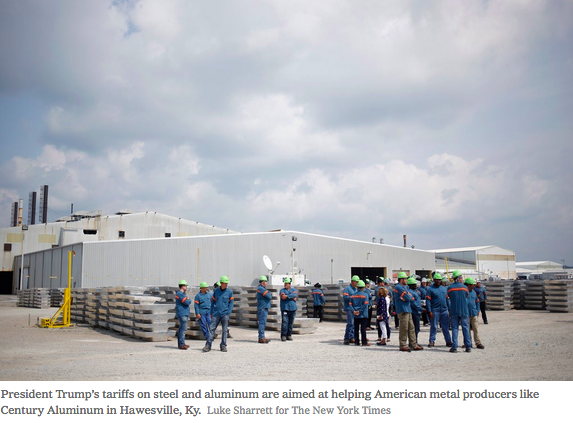. . .
In response to Mr. Trump’s metal levies, Mexico hit American goods like cheese with 25 percent tariffs, stalling business in the industry’s largest export market. As a result, Mr. Ahlem said that even if the U.S.M.C.A. is passed in Congress next year and opens access to Canada’s dairy market, he will be worse off because of the new trade barrier with Mexico.
“The old Nafta or the T.P.P. would have been better,” Mr. Ahlem added, referring to the Trans-Pacific Partnership agreement that Mr. Trump withdrew from last year. “It’s not clear to me what the strategy is.”
Mr. Trump has promoted his use of tariffs as a negotiating tool, criticizing those opposed to his approach as “babies” and suggesting he will continue to wield trade barriers as a cudgel to force concessions from other countries. He has continued to insist that his approach is helping, not hurting, American manufacturers, like the steel industry.
“The steel industry in this country is back like nothing I’ve seen before,” he said on Tuesday.
But American companies are beginning to feel the effects of a one-sided strategy, which aims to help domestic industries but ignores the globalized nature of United States businesses, which rely on supply chains and customers across borders.




